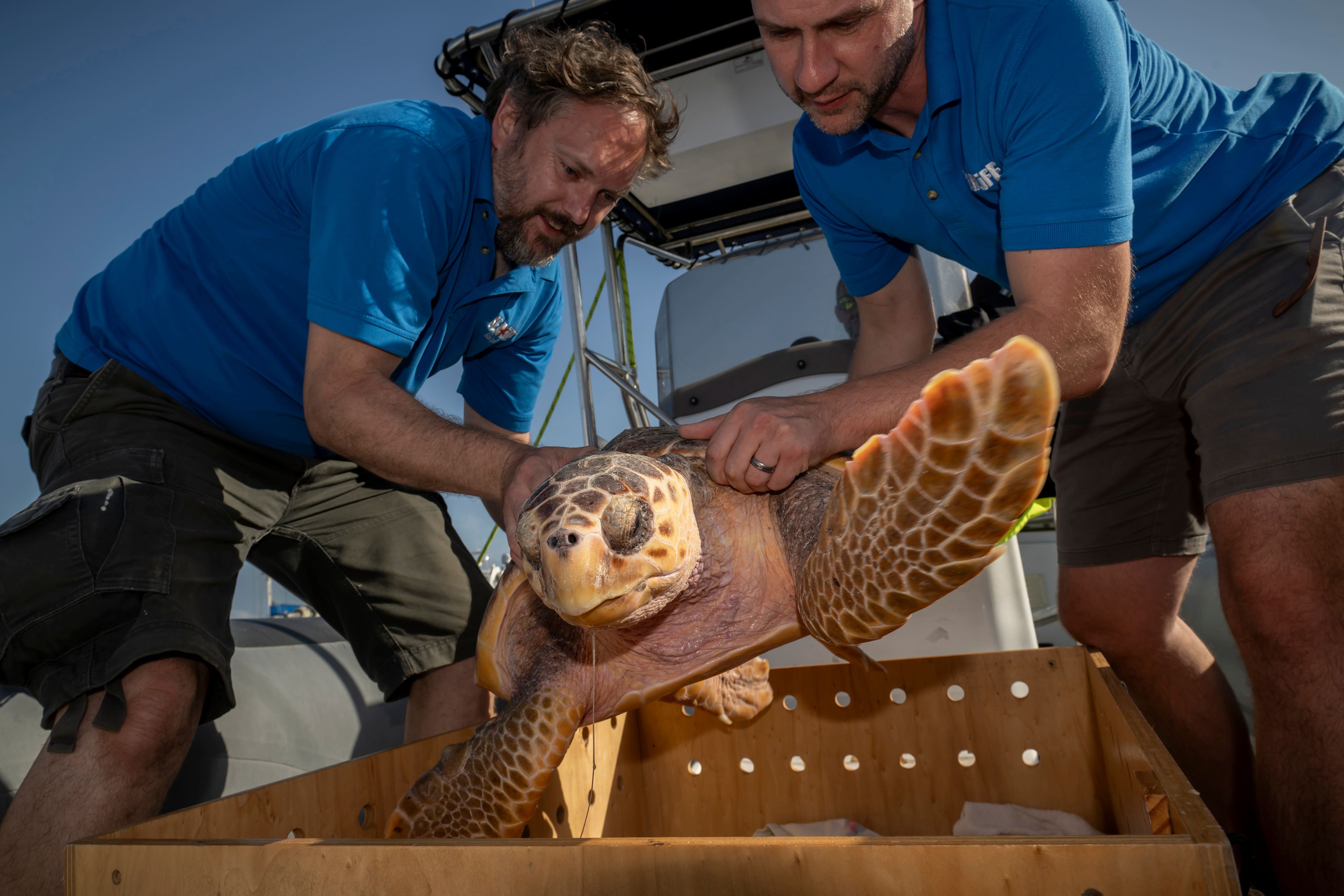Injured sea turtle given third chance at life after rehabilitation
Nazare was discovered washed up on a beach in Barrow-in-Furness.

Your support helps us to tell the story
From reproductive rights to climate change to Big Tech, The Independent is on the ground when the story is developing. Whether it's investigating the financials of Elon Musk's pro-Trump PAC or producing our latest documentary, 'The A Word', which shines a light on the American women fighting for reproductive rights, we know how important it is to parse out the facts from the messaging.
At such a critical moment in US history, we need reporters on the ground. Your donation allows us to keep sending journalists to speak to both sides of the story.
The Independent is trusted by Americans across the entire political spectrum. And unlike many other quality news outlets, we choose not to lock Americans out of our reporting and analysis with paywalls. We believe quality journalism should be available to everyone, paid for by those who can afford it.
Your support makes all the difference.An injured loggerhead sea turtle has been given a third chance at life following a successful rehabilitation programme.
Nazare was discovered washed up on a beach in Barrow-in-Furness in Cumbria on February 4 showing no signs of movement.
The creature was severely cold-stunned, suffering from pneumonia, and burdened with a thick build-up of algae and seaweed covering her shell upon her arrival at Sea Life Blackpool.
Sea Life discovered she had been stranded before and, after a rehabilitation period, she was flown to the Azores and has been released back into the wild this September.
When she was found, Nazare had a satellite tracking device fitted to her shell and was found to be microchipped, so Sea Life used its network to reach out to other aquariums around Europe.
It learned that the turtle had been released in June the previous year, having been found stranded before at Saint-Hilaire-de-Riez, France.
Nazare’s care at Sea Life Blackpool involved gradually raising her body temperature, administering hydration injections, and closely monitoring her condition round the clock.
The team created floats to support her in order to make sure she did not drown, as well as using a toothbrush to clean her shell and within days, she began showing signs of improvement, eating and moving independently.
Once stabilised, she was transferred to Sea Life Scarborough for further rehabilitation.
Curator at Sea Life Scarborough Todd German told the PA news agency the turtle was transported from Blackpool in the front of the van with him due to the cold temperatures.
“We were closely monitoring her behaviour, her actions, her feeding, even how often she was pooping, and then from there … we were able to transport her into our ocean tank,” he said.
Once the team at Sea Life were happy Nazare was fit, healthy and ready to be returned to the wild, they secured Nazare her own turtle passport, enabling her to be flown to the Azores.
Nazare was temporarily housed at Porto Pim aquarium in Portugal before her release back into the wild this September.
Mr German said a different turtle was rehabilitated by Scarborough Sea Life last year and the team learned “loads of lessons” from its rehabilitation, which took months due to the paperwork involved.
He said: “That meant the rehabilitation process could be a lot quicker for Nazare and in the end, it only took about five or six months, although we had a lot of challenges still in getting her over to the Azores.”